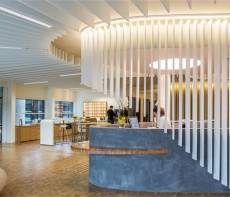May 28, 2014
Money alone isn’t enough to attract and hold on to Gen Y employees
 The retention of Gen Y employees is key for all organisations. No organisation wants to invest in their next generation of management only to find that they leave, and someone new needs to be trained. But the 20-30 year old workers of Gen Y exhibit a new-found job mobility. Which makes for a ticking time-bomb of potential cost and disruption to their employers. The iOpener Institute has gathered and studied questionnaire responses from over 30,000 professionals across the world, gaining insights into how employers can retain their Gen Y talent. The research clearly shows that while pay and financial rewards are important to Gen Y (i.e. they are not prepared to be under-paid for their work), there is no significant correlation between increased levels of pay and greater talent retention.
The retention of Gen Y employees is key for all organisations. No organisation wants to invest in their next generation of management only to find that they leave, and someone new needs to be trained. But the 20-30 year old workers of Gen Y exhibit a new-found job mobility. Which makes for a ticking time-bomb of potential cost and disruption to their employers. The iOpener Institute has gathered and studied questionnaire responses from over 30,000 professionals across the world, gaining insights into how employers can retain their Gen Y talent. The research clearly shows that while pay and financial rewards are important to Gen Y (i.e. they are not prepared to be under-paid for their work), there is no significant correlation between increased levels of pay and greater talent retention.























May 29, 2014
What is expense management costing you and your business?
by Richard Gyles • Comment, Workplace